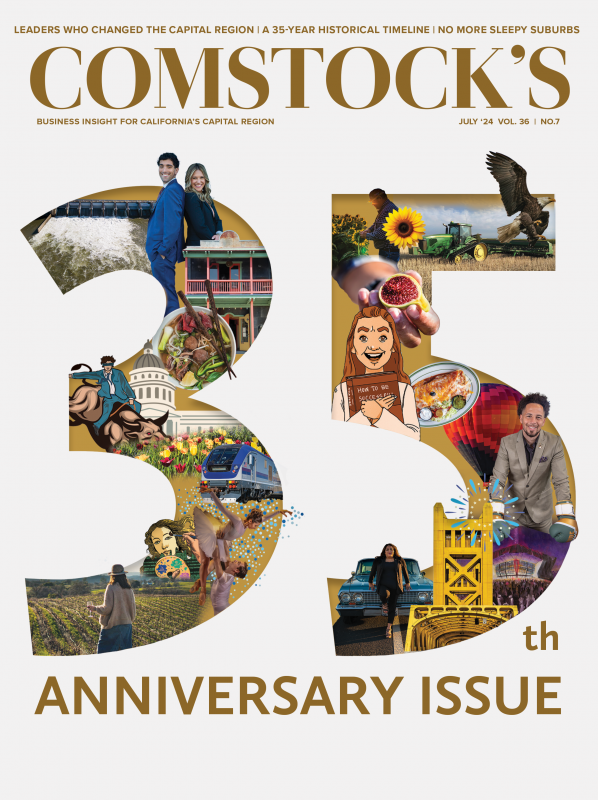California is the No. 1 tourist destination in the United States — with visitors spending $150 billion each year — and it’s Caroline Beteta’s job to keep it that way. Branding takes work. “People have discretionary dollars, and they can go to Florida instead of California,” says Beteta, the CEO of Visit California. “It’s no different than choosing Coke or Pepsi.”
Sometimes politicians object and tell her, “But California markets itself!” Beteta has a simple response. “Well, senator, you have 100 percent name recognition in your district. Did you run a campaign?” That ends the conversation.
So how does Beteta run this “campaign” to keep California flush with tourists (and revenue)? On paper it’s a dream job of nonstop travel — from Japan to D.C. and crisscrossing California — but the reality is that most days she’s stuck in her office until 7 p.m. Thankfully she has a secret weapon: white space.
On the importance of “white space”: “People don’t understand how important white space is,” she says, referring to letting your mind drift and wander, whether on vacation or even in small moments throughout the day. One simple hack that creates white space: “When I drive to the grocery store, I take a different route each time; it’s like a mini road trip.”
Why she insists on vacations: Vacations yield white space. “In America, vacations are seen as a guilty pleasure or a black mark,” she says, so she bucks that trend by encouraging her staff to use every single one of their vacation days, and even gives them a $300 gift card as a reward for using all their PTO.
6:00AM – Wakes up, drinks coffee, steps outside to soak in the sunshine. “Natural light is super important. Fresh air is literally and figuratively oxygen to me.”
6:15AM – Scours the news, using X, formerly Twitter, on her iPad to quickly read a wide range of stories both local and global. “News is my world. Sometimes my staff is shocked when I can comment on water policy when asked by the media.”
7:00AM – Takes her dogs (Beau and Buster, a chocolate Labrador and a corgi) for a walk. Gets ready for the day.
7:30AM – Begins an hour-long drive from her home in the Sierra foothills to her office on the Capitol Mall. During the entire drive she’s on calls or in meetings, ensuring the time isn’t wasted. (Sometimes she’ll sit in the parking garage for 20 minutes to finish a call.)
8:30AM – One day a week she’s traveling, but the rest of the time she’s at her office for a full day of back-to-back-to-back meetings. “I’m locked in like a prisoner,” she says with a laugh.
9:30AM – The meetings are often to oversee Visit California’s 300 vendors. “We have a very different business model,” she says, explaining that the 75 employees at headquarters are primarily managing relationships with vendors — the ad agency alone has a $60 million contract.
11:00AM – The meetings often revolve around “POETS,” Beteta’s acronym to convey all the ways Visit California gets its message out: paid advertising, owned channel network (with its 23 million followers across all platforms), earned media (such as this very article), trade execution and social-shared. She recently addressed the staff by saying, “Welcome, all of you, you’re all part of the Global POETS Society.”
12:00PM – Lunch at her desk. Because she’s trapped in her office all day, she keeps a pair of binoculars at work and uses them to peer down below at the farmers market or the food stalls, finding inspiration for meals.
1:00PM – On travel days? She’ll spend the bulk of her time meeting with industry and community leaders, both learning about their offerings (this can mean food and wine tastings, the glamor part of the job) and sharing her vision of how to promote Brand California, such as a new campaign to highlight road trips in the state.
3:00PM – When in D.C., she’ll focus on policy, such as pushing for more relaxed visa regulations. “When we got a visa waiver out of South Korea, overnight the tourism grew by 30 percent.”
5:00PM – She keeps meetings focused with what she calls the “three Ps” — personal (making real human connections), perspective (remembering the task at hand) and productive (“there’s got to be an outcome”).
7:00PM – Most days she’s not able to leave the office until 7, meaning she doesn’t get home until 8, so her husband Art Whitney “gets the raw end of that deal.” They have a combined four kids in a “Brady Bunch situation,” but all are adults and have left the home. Drinks a protein shake on the drive.
8:00PM – Dinner is maybe barbecue courtesy of Whitney or light meals that were prepped on Sunday, or DoorDash in a pinch.
9:00PM – Checks the news (she only does this in the morning and at night), and for the first time all day she allows herself to open TikTok. This is her wind-down. “I watch TikTok like people watch linear television.”
10:00PM – Tries to get to bed by 10, but sometimes it’s as late as midnight. “I need my seven to eight hours,” she says, as she can function on four hours for a stretch but “it’s not sustainable.”
–
Stay up to date on business in the Capital Region: Subscribe to the Comstock’s newsletter today.
Recommended For You
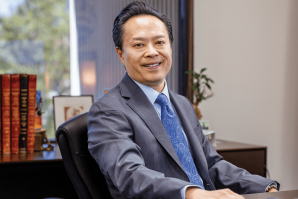
The Way We Work: Thien Ho
A glimpse into the daily life of Sacramento County’s district attorney
Thien Ho oversees 180 attorneys and a budget of $129 million with a purview of prosecuting all misdemeanors and felonies in the county. He starts his day with lots of water.
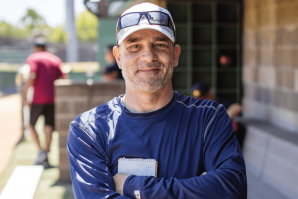
The Way We Work: Joe Davidson
A glimpse into the daily life of the busy Sacramento Bee sportswriter
His days are wildly different, depending on the sport and the season. So we’ll unpack his favorite and his busiest: Fridays covering high school football.

The Way We Work: Tony Tavares
A glimpse into the daily life of the director of Caltrans
His trick for listening to all those voices? He starts every day in the middle of the night.
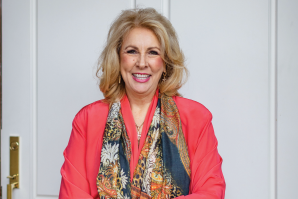
The Way We Work: Kim Pacini-Hauch
A glimpse into the daily life of Sacramento’s top Realtor
Pacini-Hauch’s secret? “I answer the phone,” she says, adding that clients are routinely surprised that she always picks up or calls them back immediately, no matter when.
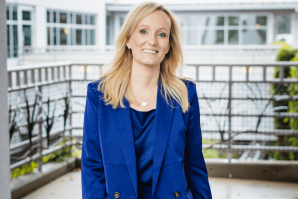
The Way We Work: Mercy Hospital President and CEO Lisa Hausmann
A glimpse into the daily life of a Dignity Health hospital executive
The roughly 900-employee, 106-bed hospital has gotten really good thanks in large part to Hausmann’s tireless work ethic, something she calls the “protected hour,” and a box of cookies.




